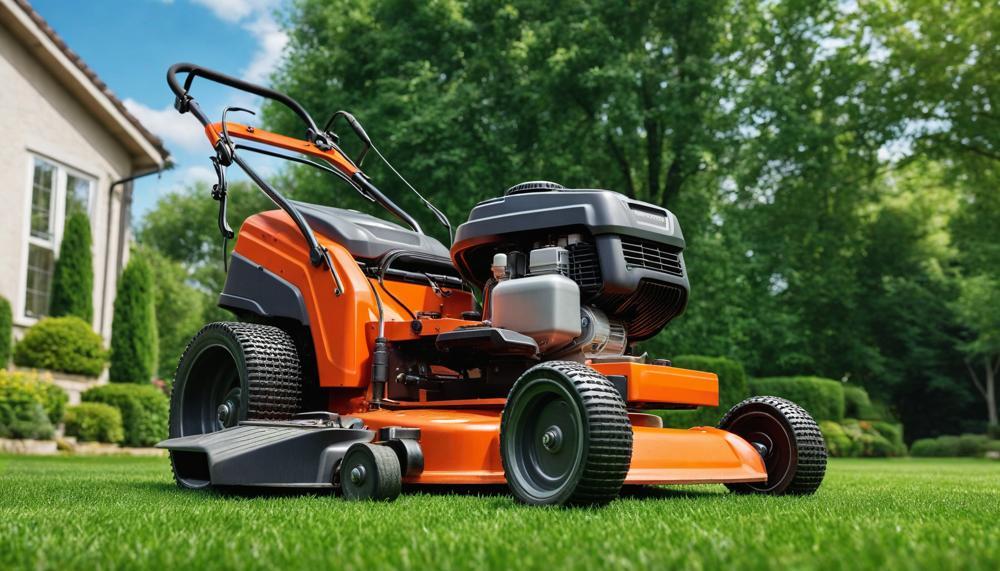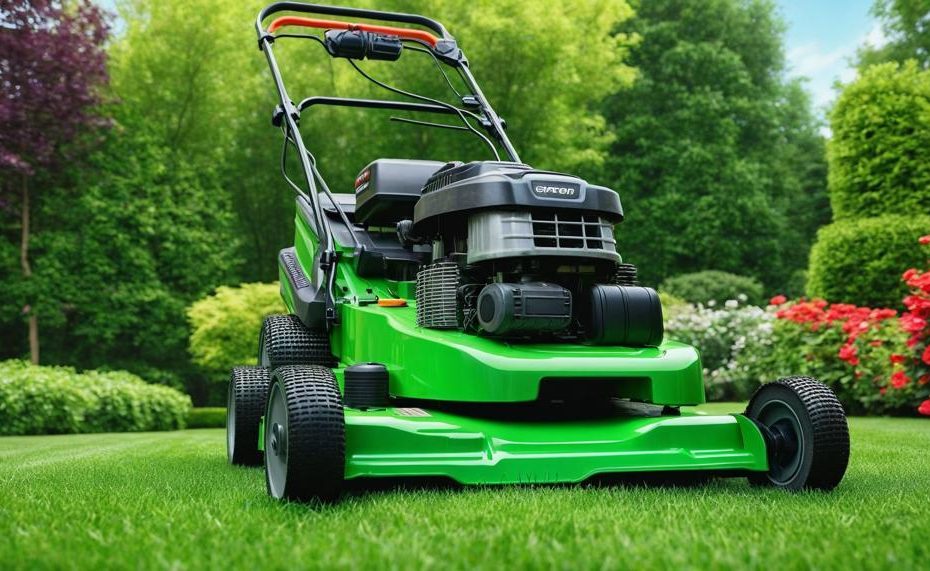Disposing of a lawn mower isn’t just about freeing up garage space—it’s crucial for the environment and staying compliant with local laws. Whether you’re dealing with a trusty push mower or a hefty riding model, there are several responsible and eco-friendly ways to part with your old machine.
Key Takeaways:
- Assess Condition: Determine if your mower is operational. If it’s still running, selling or donating might be your best options.
- Sell or Donate: Clean and prepare the mower to make it appealing for sale or donation. This helps others and reduces waste.
- Recycle: For non-functional mowers, find a recycling center. Drain fluids and disassemble as necessary for safe disposal.
- Safety First: Always handle and transport your mower with care to avoid accidents or spills.
- Follow Local Guidelines: Each area has specific rules for disposing of large items. Check with your local municipality for precise instructions.
By choosing the right disposal method, you’re not only clearing up space but also contributing to a healthier planet. Ready to learn more? Let’s dive into the specifics of each disposal option to help you make the best choice.
Contents
🌱 Stay Connected with Our Gardening Community. 🌱
Staying connected with a gardening community can greatly aid in disposing of a lawn mower properly. Here’s how:
| Benefit | Details | External Link |
| Local Regulations Guidance | Gardening communities often share knowledge about local regulations and drop-off locations for lawn mower disposal, ensuring compliance with environmental laws. | EPA Recycling Basics |
| Resource Sharing | Members can provide information on recycling centers, charities, or non-profit organizations that accept lawn mower donations or offer disposal services. | Earth911 Recycling Guide |
| Environmental Protection | Communities highlight the importance of proper disposal to prevent harmful chemicals like oil and gasoline from polluting the environment and harming wildlife. | Wildlife Habitat Council |
| Recycling and Donation | Gardening groups encourage recycling or donating old mowers, which reduces waste and conserves resources. They can suggest local charities in need of lawn equipment. | Recycle Mower |
| Preparation Tips | Members can offer tips on preparing a mower for disposal, such as draining fluids, disconnecting the spark plug, and removing the blade safely. | Popular Mechanics Guide |
| Cost Information | Gardening communities may provide insights on disposal fees and cost-effective methods, helping you plan your budget accordingly. | Recycling.com Fees Explained |
How to Dispose Of Lawn Mower Properly
The proper way to dispose of a lawn mower involves several critical steps to ensure both environmental safety and compliance with legal regulations. Here’s a detailed guide on how to do it right:
| Action | Details | Why It’s Important |
| Sell or Donate | Functional mowers can be sold or given away | Extends the mower’s life and helps someone in need |
| Drain Fluids | Remove all oil and gasoline from gas mowers | Prevents environmental contamination |
| Remove Plastics | Detach plastic parts before recycling | Simplifies recycling process |
| Use Proper Centers | Take to scrap metal or electrical recycling centers | Ensures safe and legal disposal |
| Pay Fees if Needed | Some centers may require disposal fees | Covers processing and handling costs |
| Avoid Abandonment | Do not leave mower in undesignated areas | Avoids fines and legal repercussions |
Preparations for Disposal
To properly dispose of your old lawn mower, follow these steps:
| Step | Action | Details |
| 1 | Determine Condition | Check if the mower is operational or broken. |
| 2 | Drain Fluids (Gas Mowers) | Safely drain oil and gas into proper containers. |
| 3 | Remove Plastic Parts (Gas Mowers) | Separate and dispose of plastic components. |
| 4 | Recycling (Gas Mowers) | Take metal parts to a scrap metal center. |
| 5 | Curbside Pickup (Gas Mowers) | Contact waste management for collection. |
| 6 | Dump/Transfer Station (Gas Mowers) | Bring drained mower to a local facility. |
| 7 | Recycling (Electric Mowers) | Use Earth911.com to find a center. |
| 8 | Avoid Improper Disposal | Never dispose of electric mowers in regular trash. |
| 9 | Environmental Protection | Ensure complete drainage of all fluids. |
| 10 | Compliance | Follow local regulations to avoid fines and environmental harm. |
Disposal Methods
When it comes to disposing of a lawn mower, several methods exist, each with unique advantages and challenges. Here are the primary disposal methods and their environmental impacts:
| Method | Description | Environmental Impact |
| Recycling | Metal parts are melted down and reused. Plastic parts are more challenging to recycle and may end up in landfills. | Moderate to High: Effective for metal parts but less so for plastic, potentially leading to landfill waste. |
| Donation | Working mowers are given to charities or organizations, refurbished, and donated to those in need. | High: Keeps mowers out of landfills and supports community members in need. |
| Trade-in Programs | Retailers offer credit towards a new mower when you trade in your old one. | High: Encourages reuse and proper disposal, reducing landfill waste. |
| Hazardous Waste Facilities | Dispose of mowers with hazardous chemicals like oil and gasoline at designated facilities. | Low: Necessary for hazardous materials but involves environmental risks if not handled correctly. |
Most Environmentally Friendly Option

Donation and trade-in programs are the most environmentally friendly disposal methods. They prevent lawn mowers from ending up in landfills and extend the mower’s life cycle by providing it to someone else. This approach not only reduces waste but also offers economic benefits to those who might not afford a new mower.
Conclusion
Disposing of an old lawn mower can be a straightforward and rewarding task when done properly. Whether you’re parting with a reliable push mower or a heavy-duty riding model, your choices significantly impact the environment and community. First, evaluate your mower’s condition. If it still runs, consider selling or donating it. This not only extends the machine’s life but also reduces waste.
For non-functional mowers, recycling is the best option. Ensure all fluids are drained and components are disassembled for safe disposal at a recycling center. This step prevents harmful substances from polluting the environment.
Always prioritize safety when handling and transporting your mower to avoid accidents. Moreover, local regulations may vary, so check with your municipality for specific disposal instructions. Engaging with a gardening community can provide valuable insights and resources, from local disposal guidelines to potential drop-off locations.
By thoughtfully choosing how to dispose of your lawn mower, you contribute to a healthier planet and support sustainable practices.





